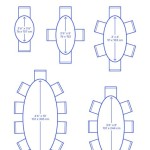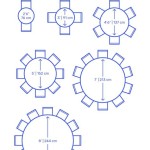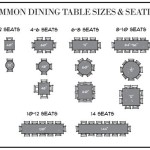Research Methods: A Comprehensive Guide to Essential Aspects
Research methods are the systematic and structured techniques used to collect, analyze, and interpret data to answer research questions. They play a crucial role in advancing knowledge, informing decision-making, and solving problems. This guide provides a comprehensive overview of the fundamental aspects of research methods, empowering you with a solid understanding of their role and importance.
Types of Research Methods
Different research methods are employed depending on the research objectives, available resources, and nature of the data required. Some common types include:
- Quantitative methods: Focus on numerical data and statistical analysis to test hypotheses and generalize findings to larger populations.
- Qualitative methods: Explore subjective experiences, meanings, and social contexts through non-numerical data analysis, such as interviews and observations.
- Mixed methods: Combine both quantitative and qualitative methods to gain a more comprehensive understanding of a research topic.
- Experimental methods: Conduct controlled experiments to investigate cause-and-effect relationships.
- Non-experimental methods: Study existing data or observe phenomena without directly manipulating variables.
Selecting Appropriate Research Methods
Choosing the appropriate research method is crucial for the success of a research project. Factors to consider include:
- Research question: The question you are trying to answer will determine the type of data you need to collect and the methods you can use.
- Data availability: The availability of existing data or the need to collect new data will influence your method selection.
- Resources: Consider the time, budget, and expertise available for your research.
- Ethical considerations: Ensure that your methods align with ethical guidelines and protect the rights of participants.
Data Collection
Data collection involves gathering the necessary information to answer the research question. Methods include:
- Surveys: Questionnaires administered to a sample of individuals.
- Interviews: In-person or telephone conversations with participants.
- Observations: Direct or indirect observation of behavior or phenomena.
- Document analysis: Examination of existing written or electronic documents.
- Experiments: Controlled manipulation of variables to test hypotheses.
Data Analysis
Data analysis involves processing and interpreting the collected data. Quantitative data is typically analyzed using statistical techniques, while qualitative data is analyzed using interpretive methods such as thematic analysis or discourse analysis.
Interpretation and Dissemination
Once the data has been analyzed, the researcher interprets the findings and draws conclusions. These conclusions are then disseminated through reports, articles, presentations, or other appropriate channels to reach the intended audience.
Conclusion
Research methods are essential tools for conducting rigorous and meaningful research. Understanding the different types of methods, their appropriate use, and the principles of data collection and analysis is crucial for successful research outcomes. This comprehensive guide provides a solid foundation for researchers to navigate the complexities of the research process and produce valuable and impactful findings.

Research Methods In Psychology 4th American Edition Open Textbook Library

Steps Of The Scientific Method

The Ultimate Guide To Identifying Wood Types In Furniture 2024

The Ultimate Guide To Zone 4 Training Threshold Science Strategy And
Pairwise Comparison Definition Methods Tools Examples Opinionx Free Stack Ranking Surveys

The 5w1h Method Elements Example Safetyculture

Looking Back To Look Forward Reflections From Networked Research On Energy Poverty Sciencedirect

Conceptualizing The Circular Economy Revisited An Ysis Of 221 Definitions Sciencedirect

Levels Of Evidence In Research Elsevier Author Services

What Is Action Research Updated 2024 Ixdf
Related Posts








